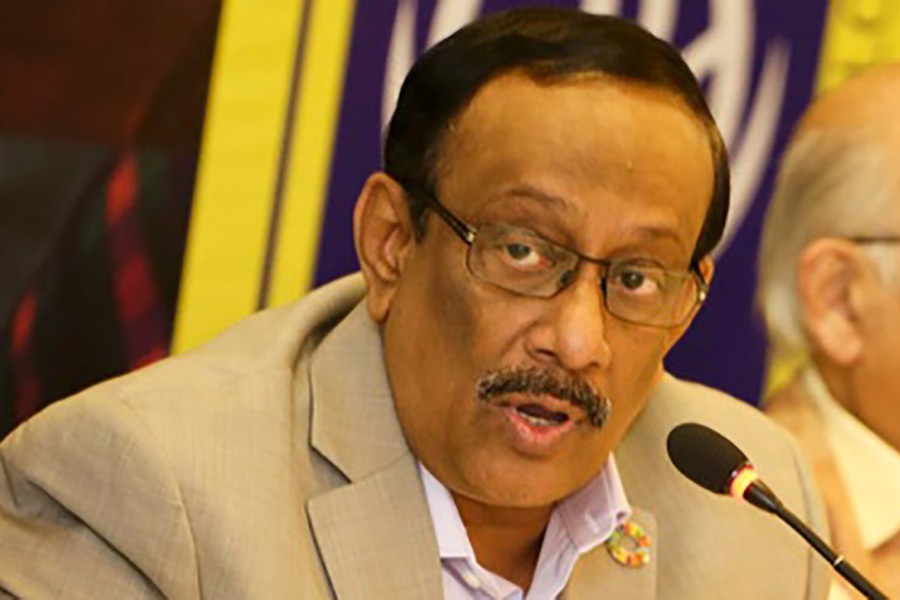Bangladesh is very close to reaching a repatriation agreement with Myanmar for a 'bilateral' solution to the Rohingya crisis.
Foreign Secretary Shahidul Haque came up with the statement while addressing a dialogue in Dhaka on Saturday.
The Centre for Policy Dialogue (CPD) organised the dialogue titled 'Addressing Rohingya Crisis: Options for Bangladesh' arranged by at a city hotel.
"Currently, we are focusing on signing a bilateral arrangement for the return of Rohingyas...we are very close in terms of reaching a return agreement with Myanmar authorities," he said.
Bangladesh has so far adopted a policy which is a mix of 'soft and hard approaches' to resolve the Rohingya crisis, he added.
The Foreign Secretary said Foreign Minister AH Mahmood Ali is going to Myanmar later this month.
"Hopefully, we will be able to close the differences we have in a couple of places of the latest draft. We think we will be able to resolve it peacefully," he said.
He, however, said if the bilateral arrangement does not work finally, Bangladesh has other options on the table. But he did not share the option.
Dhaka University's International Relations Department Professor Imtiaz Ahmed, former Bangladesh Ambassador to Myanmar Maj Gen (retd) Anup Kumar Chakma and Executive Director, BRAC Dr Muhammad Musa spoke at the dialogue.
According to UNB report, CPD Chairman Prof Rehman Sobhan presided over the event. Its Executive Director Dr Fahmida Khatun presented the keynote paper.
Distinguished Fellow of the body Dr Debapriya Bhattacharya moderated the session.
Prof Imtiaz said Bangladesh should call the Rohingyas 'refugee' as the terminology 'forcibly displaced Myanmar citizens,' does not make any sense and it is not a legal term as well.
The terminology 'forcibly displaced Myanmar citizens,' is absolutely unworkable and wrong as they are not Myanmar citizens, he said adding that citizen is a legal term.
"So, I think, first we should call them what they are. They are refugees that a legal term. Once you call them refugees, they have to go back," he said.
Prof Imtiaz said there is an international consensus for the first time and there is enough footage to say genocide took place.
"Since it is genocide or ethnic cleansing, it cannot be bilateral. No genocide in the world can be bilateral. It's an international issue," he said.
Former Ambassador Farooq Sobhan said if the Rohingya problem is not solved, the whole 'One Belt One Road Initiative' and BIMSTEC will be seriously jeopardised.
Prof Rounaq Jahan urged the media to focus on the plight of Rohingya rather than the challenges of Bangladesh in this regard.
Prof Sukumar Barua said it is not religious issue between Muslim and Buddhist rather it is an issue of state.
"It can be solved bilaterally but international community will have to keep pressure for resolving the crisis," he said.
Indigenous community leader Sanjeeb Drong said if it takes a longer time to send back Rohingyas, the life and security of the indigenous community will be seriously affected in the Chittagong Hill Tracks (CHT).
BGB Director General Maj Gen Abul Hossain, security expert Brig (retd) M Sakhawat Hossain, ActionAid country director Farah Kabir and diplomats from different foreign missions stationed in Dhaka also spoke at the dialogue.


